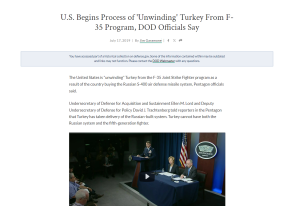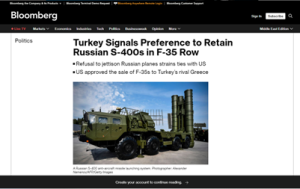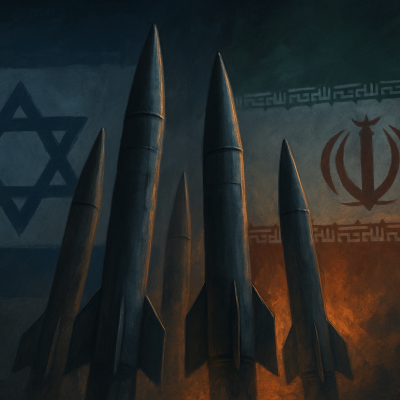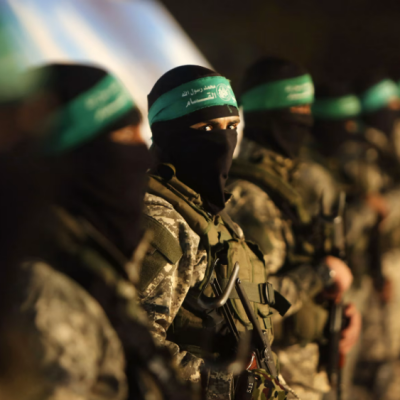Navigating the Grand Strategy Chessboard: Orchestrating Influence and Stability Scenario
To deal with the future we have to deal with possibilities. Analysis will only tell us ‘What is’. Edward de Bono, Parallel Thinking
In the second section, the report examines future proections, using flashbacks to illustrate that as we move further in the future, it becomes more difficult to predict what will happen. Forecasting the future involves more than just extrapolating current data; it requires a deep understanding of how continuity and change interact dynamically. Various factors such as exponential growth of information, rapid technological advancements, environmental changes, and the intricate web of global interconnectedness surely make this task increasingly challenging. Consequently, future developments are unpredictable due to these factors.
To begin with, the U.S. continues to espouse human rights ideals but exerts minimal pressure for their adoption in the region. As this scenario is marked by significant U.S. involvement with proactive diplomacy, it illustrates the complexity and unintended consequences that can occur while the United States attempt to promote regional stability and curb the influence of global rivals such as China and Russia in the region. The dynamics between the U.S., Russia, and regional players illustrate a chess-like strategy of multi-tiered interactions, where each move impacts the broader geopolitical balance.
It appears that a potentially transformative approach to Middle Eastern diplomacy and security is in the process of transition in alliances and strategic postures. As an ongoing effort to counter Iranian influence and Chinese expansionism, the U.S. has re-engaged with Turkey, conditional on the latter divesting from Russian defense systems and energy, and sold strategic arms to GCC countries. Furthermore, proposals for resolving longstanding regional disputes, as well as changes in the internal policies of pivotal states like Saudi Arabia and Iran, indicate a recalibrating of interests aimed at fostering a more stable and secure Middle East.
The constraints faced by Russia due to its alliance with the Assad regime, juxtaposed with the U.S.’s assertive stance against Turkey’s acquisition of the Russian S-400 missile system, exemplify the complex dynamics of global politics. The U.S.’s actions, including sanctions to the strategic exclusion of Turkey from F-35 program under the Countering America’s Adversaries Through Sanctions Act (CAATSA) on the grounds that they could compromise the security of NATO assets , and potentially allow Russian access to sensitive NATO data, highlight the intricacies of aligning international alliances with national security objectives and NATO’s security interests against adversaries.


Both NATO members, U.S. and Turkey, still experience strains. On February, 2024,Turkey’s Foreign Minister Hakan Fidan signaled a preference to retain Russian air defenses.Additionally, with Turkey’s energy ties with Russia have been a point of concern for the U.S., given the broader geopolitical contest between the West and Russia, particularly in the realm of energy security and the influence it grants Russia over European and NATO allies’ economies, Turkey becomes more supported by the U.S. in becoming an energy conduit to Europe. In a strategic move to diminish Russia’s influence, the U.S. sponsers an agreement on Cyprus and the delineation of Mediterranean territorial waters. This agreement allows Greece to retain its islands, while Turkey expands its economic zone, aligning with the U.S. strategy to weaken Russia’s geopolitical stance. This effort includes U.S. initiatives to convince Syria to terminate Russian military basing rights and to curtail Iranian military activities, further isolating Russia and limiting its power in the region.
Meanwhile, Iran navigates a delicate path towards a deal with Saudi Arabia, agrees to incorporate Shia militias into Iraq’s military infrastructure, thereby maintaining its influence through indirect channels. Iran gravitates towards Russia and China between 2023 and 2027 especially as regional powers challenge the Iranian nuclear deal due to Iran’s regional activities and nuclear ambitions. This realignment, away from Europe, reflects Iran’s adaptation to an evolving international landscape, seeking partners who offer support without stringent conditions on its regional activities. By 2030, it is expected that Iran announces a nuclear weapons program following a successful underground test. If Iran’s reformists secure a parliamentary majority in 2024 this would enable reaching for comprehensive nuclear deal that limits Iran’s military capabilities in exchange for lifting sanctions and expanding its civilian nuclear program. Amidst these shifting sands, Hezbollah , with its eye on a strategic prize, consents to Lebanon’s maritime boundary agreement with Israel. This accord, critical for gas field development, allows Hezbollah to maintain its strong political and military presence, a calculated move in the complex chess game of Middle Eastern politics.agrees to a landmark maritime boundary agreement with Israel, facilitating the development of Lebanese gas fields while ensuring the group retains its significant political and military power.This period of transition is also marked by Iran’s adept exploitation of unrest in predominantly Shia regions such as Iraq, Saudi Arabia, and Kuwait, as well as in politically and economically unstable areas like Jordan and Israel, inciting widespread protests to further its strategic objectives.
Yet, this narrative of proactive diploamcy underscores a critical realization: robust U.S. involvement, while essential, might not be sufficient to ensure regional stability when it comes to Israeli-Palestinian conflict thus sustaining regional stability. The leverage regional actors possess, coupled with Russia’s constrained yet significant influence, underscores the precariousness of current geopolitical achievements. Initiatives such as the Abraham Accords, Saudi-Iranian Deal or nuclear agreements face the threat of unraveling amidst the rapidly changing security dynamics.
In the volatile arena of Middle Eastern politics, recent surges in the conflict between Israel and Palestinians have precipitated a stark response from neighboring Arab nations. Egypt and Jordan, historically brokers of peace, become forced, leading them to sever diplomatic ties with Israel.This drastic measure speaks to the deepening complexity of regional relations. In the course of these tensions, Mohammed Dahlan ascends to power —gaining a stronghold in Gaza post-conflicts — serves a pivotal moment that reflects the deep-seated inter-factional rivalries among Palestinians and highlights the multifaceted nature of the Israeli-Palestinian conflict, intertwining with broader regional politics. Both Israel’s role in Palestinian politics and Dahlan’s ascent, further stirs the pot of regional dissent. Adopting more assertive stances towards Israel and bolstering Palestinian unity becomes a priority for Arab countries.This unraveling not only demonstrates the challenges of mediating peace but also illuminates the dense tapestry of alliances and conflicts that cast a long shadow over the Israeli-Palestinian dialogue. In this quest for control and unity among Palestinian factions, the path forward is further obstructed, demanding a recalibration of strategies by all parties involved in this historic conflict.
In conclusion, the path to peace and stability in the Middle East is fraught with complexities that extend beyond the capacity of any single nation’s influence. The chessboard-like strategy of international relations in the region demands a nuanced understanding of the interdependencies and rivalries that shape its landscape. As the U.S. and the region navigate these turbulent waters, it becomes increasingly clear that fostering enduring peace requires a concerted effort that embraces the diversity of interests and perspectives within the region, while also anticipating the unintended consequences of strategic decisions.
Sources:
Andrew Curry and Wendy Schultz. “Road Less Traveled: Different Methods, Different Futures.” Journal of Future Studies. May 2009.
https://jfsdigital.org/wp-content/uploads/2014/01/134-AE03.pdf
De Bono,Edward.Parallel Thinking.1990
Garamone, Jim. “U.S. Begins Process of ‘Unwinding’ Turkey From F-35 Program, DOD Officials Say.” Department of Defense, 17 July 2019, https://www.defense.gov/News/News-Stories/Article/Article/1908351/us-begins-process-of-unwinding-turkey-from-f-35-program-dod-officials-say/.
Hacaoglu, Selcan. “Turkey Signals Preference to Retain Russian S-400s in F-35 Row.” Bloomberg, 5 Feb. 2024, https://www.bloomberg.com/news/articles/2024-02-04/russian-s-400-missiles-remain-an-irritant-in-turkey-us-relations?embedded-checkout=true.
Jamal,Urooba. “The beginning of the end? The hypothetical future of Palestinian politics.” Al Jazeera, 28 Nov.2023,https://www.aljazeera.com/features/2023/11/28/the-beginning-of-the-end-the-hypothetical-future-of-palestinian-politics
Jonas Svava Iversen. “Futures Thinking Methodologies — Options Relevant For ‘Schooling For Tomorrow.’” OECD. http://www. oecd.org/education/ceri/35393902.pdf
Salami,Mohammad. “The Role of Militias in Iraq: Evaluating their Impact and Strategies for Mitigation.”French Research Center on Iraq,, 21 February, 2024,https://cfri-irak.com/en/article/the-role-of-militias-in-iraq-evaluating-their-impact-and-strategies-for-mitigation-2024-02-2
Slavin, Barbra. “The Supreme Leader is Still Alive. But When He Does Eventually Die, How Will Succession Play Out?” Atlantic Council, 20 Sept. 2022, https://www.atlanticcouncil.org/blogs/iransource/the-supreme-leader-is-still-alive-but-when-he-does-eventually-die-how-will-succession-play-out/





